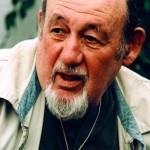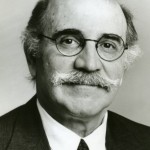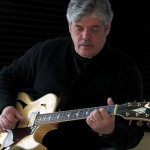Heartbreak Hotel
 A suicide note was the unlikely inspiration behind the song that became Elvis Presley’s first No. 1 hit and million-selling single.
A suicide note was the unlikely inspiration behind the song that became Elvis Presley’s first No. 1 hit and million-selling single.
Steel guitarist and session musician Tommy Durden read a newspaper article about a man who had killed himself, leaving behind a piece of paper with the haunting words: “I walk a lonely street.”
Durden brought the article to his friend and cowriter Mae Boren Axton. A 41-year-old high school English teacher who moonlighted as a journalist and a songwriter, Axton had notched a few hits in the early ’50s with artists such as Perry Como and Ernest Tubb. In late 1955, she took a part-time position as a public relations secretary for Elvis’ manger, Colonel Tom Parker. When Mae first met Elvis, she felt he had everything he needed to become a star except a hit song. “You need a million-seller and I’m going to write it for you,” she promised.
As Axton and Durden discussed how they could turn the newspaper article into a song, Axton suggested that there be a “heartbreak hotel” at the end of the lonely street. With that flash of inspiration, the pair was off and running. Painting a picture of a place where “broken-hearted lovers cry away their gloom” and “the desk clerk’s dressed in black,” they managed to convey in very few words a mood that was both romantically charged and funereal.
Though the duo is responsible for penning the song, Elvis’s name would appear on the finished record as a third writer. It’s common knowledge that the Colonel often insisted that his boy get cowriting credit in exchange for cutting a song. But in later years, Axton insisted that the shared credit was her promise made good to help Elvis buy a house in Florida for his parents.
Axton took a demo of the song to Elvis while he was on the road. His reaction was immediate. “Hot dog, Mae, play it again,” he said. It reminded him a little of Roy Brown’s “Hard Luck Blues.” He quickly added the song to his live repertoire, changing one line of the lyric, from “they pray to die” to “they could die.”
On January 10, 1956, two days after his 21st birthday, Elvis recorded his first five sides for the RCA label at RCA Studio B in Nashville. Among them was “Heartbreak Hotel.” The producer was Steve Sholes, with Bob Ferris engineering. The band included guitarist Scotty Moore, bassist Bill Black, drummer D.J. Fontana, plus Chet Atkins on guitar, Floyd Cramer on piano and vocal group the Jordanaires. The echoey atmosphere punctuated by Fontana’s rim shots and Moore’s tinny guitar lent a despair to the track that perfectly matched Elvis’s heart-rending vocal.
The gloomy song was markedly different from anything Elvis had done previously at Sun Records. When his former label boss Sam Phillips heard an acetate from the Nashville session, he pronounced “Heartbreak Hotel” a “morbid mess.”
Back in the RCA Records boardroom in New York, there was a similar consensus. Producer Steve Sholes recalled, “They all told me it didn’t sound like anything, it didn’t sound like his other records, and I’d better not release it. I better go back and record it again.”
Elvis was unfazed, certain that the song was the right one to catapult him into the big time.
It was released on January 27, 1956. The next day, Elvis made his network television debut, performing live on the Dorsey Brothers Stage Show. It was the first of six appearances over the next few months, and he sang “Heartbreak Hotel” on three of those. On April 3, he did the song on the Milton Berle Show. Two weeks later on April 21, thanks in large part to his exposure on the new medium of TV, Elvis had his first No. 1 pop single (it also topped the country chart and went Top 5 on the R&B chart).
The song has enjoyed a long life, infiltrating pop culture as the title of a best-selling novel, a major motion picture, an actual hotel (in Memphis of course), the name of several restaurants around the country and a journalist expression (when Lisa Marie Presley and Nicolas Cage split, CNN said “It seems to be heartbreak hotel for the couple”).
During his first presidential campaign, Bill Clinton boosted his popularity when he played the song on his saxophone on the Arsenio Hall Show. Clinton even said, “You know, Bush is always comparing me to Elvis in sort of unflattering ways. I don’t think Bush would have liked Elvis very much, and that’s just another thing that’s wrong with him.”
Mae Boren Axton continued to write songs into the ’60s and ’70s, but despite overtures from Elvis, never supplied him with a follow-up. Her son Hoyt became a famous country star. She died in 1982. Co-writer Tommy Durden also continued to write until his death in 1999, but never had a hit as big as the one he cowrote for Elvis. In a 1982 interview, Durden said, “That song paid my rent for over 20 years.”
“Heartbreak Hotel” was inducted into the Grammy Hall of Fame in 1995.
—By Bill DeMain
From Performing Songwriter Issue 91, Jan/Feb 2006
Category: Behind The Song







 Creative Workshops fill up quickly! Sign up here to receive first notice and announcements.
Creative Workshops fill up quickly! Sign up here to receive first notice and announcements. 





I am wondering why Glenn Reeves was not mentioned in this article, as mae stipulated that he was the guy who took a blues song and made it rock n roll. He was the voice on the demo that Mae took to Elvis.
Elvis was going to buy his parents a house in Florida? I don’t think so. He would by Graceland later in 1957 for a little over $100,000. I’m sure “Heartbreak Hotel” helped pay for it.
Mae Axton did not die in 1982!!!!!! I met her in the early 90’s after I had arrested Hoyt on drug charges. She came to Hamilton, MT and met in my office.
“On January 10, 1956, two days after his 21st birthday, Elvis recorded his first five sides for the RCA label at RCA Studio B in Nashville.”
I am sorry to say that RCA Studio B did not exist on January 1956. It was built the following year and opened on November 1957.
Heartbreak Hotel was recorded at McGavock Street Studios.
I heard that the newspaper article was from The Miami Herald.
Does anyone know if that is true?
Thank you for this enjoyable article. I’ve been researching the origin of this great song for the past four years and in 2016 I intend to publish my findings in “Walk A Lonely Street: Elvis Presley, Country Music & The True Story of Heartbreak Hotel”.
The truth isn’t necessarily what you expect … there is a tale to be told …
http://www.georgesmithpublications.com/
could not believe when i heard that a family member helped write that song proud to be a Axton..
Dear Bill DeMain & Performing Songwriter-
I would like to thank you for writing an article honoring this song and Mae. Still, I would like to point out to you that Mae parted from this life April 9, 1997 at the age of 82. She was a very inspiring person to say the least and has taken a lot of nasty press since her death regarding Heartbreak Hotel and her participation in it’s creation. Nevertheless, without Mrs. Axton’s connection in this song I don’t believe it would have ever reached Elvis or become the historical iconic song that it is today. I personally believe that she did take part in creating Heartbreak Hotel and that sites such as Wikipedia should monitor facts. All sides should be presented not just third party statements that have never been judicially proven. Mae’s own accounts of her early relationships with Tommy Durden and Elvis Presley can be read in her book, “Country Singers As I Know Em” a book that can be found in the Hendersonville, TN, Nashville, TN or Ada, OK libraries. I believe it is no longer in press. I knew her personally all of my life. She had been my mother’s English teacher, a family friend and when I was a young woman, my mentor. I worked as her personal assistant for many years typing manuscripts about her life, song copy and fielding calls from celebrities that were huge fans of hers. I even had many conversations with Colonel Tom Parker himself, not about the King, but about the woman whom he adored, about what he was planning to buy Mae for Christmas, when could she visit Vegas and numerous random other things he wanted to share with us. Young and old songwriters, musicians, actors, performers and entertainment professionals adored Mama Mae as well. While she was kind, she could be a force to be reckoned with! If she ever set her mind to do something or thought she was right about something she was stubborn, but she would admit when she was wrong. I know all of this from personal experience. I cared very much for this woman as did many people in the entertainment industry. Thank you again for the positive article!